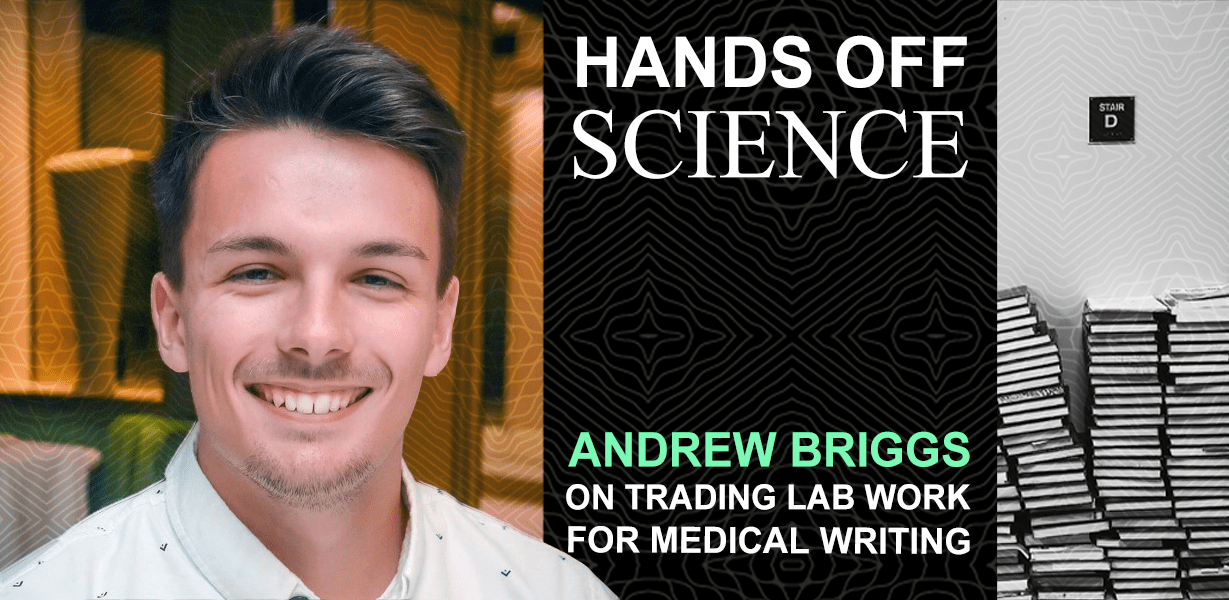Andrew Briggs, King’s College Natural Sciences alum, shares how the skills he developed in his degree aided him in becoming a medical writer, rather than working in the lab
It wasn’t until lent term of third year that I discovered medical writing. After writing my dissertation, I realised I wanted to continue writing about science, taking a more hands-off approach compared with lab work. However, since I had opted not to take a Part III NatSci, graduating with a BA disqualified me from a lot of the ‘essential requirements’ of many medical writer roles. I then discovered the allegro programme, a training programme providing the opportunity to enter the field of medical communications as a Medical Writer.
How does the allegro programme work?
The name allegro gives some idea of how the programme works; the first two months consist of a fast-paced learning phase focused on developing the skills needed to become competent in the role (however, while fast-paced, I never felt the pressure of a looming essay deadline or upcoming tripos exam I hadn’t revised enough for). The support of the allegro programme is truly where it shines; no-one is left without guidance or assistance and the feedback I received on my work was constructive and helpful. After the two-month training phase, members of the programme then undergo two consecutive 5-month rotations, working on real projects and further refining their skills under the guidance of a mentor. From starting the programme as an Associate Medical Writer to ‘graduating’ as a Medical Writer a year later, I could see measured progress and felt confident in my ability to fulfil all requirements of the role and succeed in the field.
writing weekly essays and my dissertation aided in developing both my researching and writing skills, which are used almost non-stop in my day to day work
What does being a Medical Writer involve?
As a Medical Writer, days are usually split between writing content for client projects and managing the status of such projects throughout their life cycle. Currently, my work involves the development of manuscripts and review articles destined for submission to journals. While the materials I have preferred to work on at Ashfield have mostly been publication-focused, joining the business as a Medical Writer provides ample opportunity to work on a range of different projects, including more visual formats such as educational slide decks or brochures, presentations, and websites.
Doing a Natural Sciences degree has provided many benefits in my work. The need to become a near-expert in many areas of science during my degree definitely came in handy when learning about brand-new therapy areas; I particularly felt like picking up the knowledge for my work was a breeze compared to the amount of topics covered across my subjects. Furthermore, writing weekly essays and my dissertation aided in developing both my researching and writing skills, which are used almost non-stop in my day to day work. However, despite already having some experience, the allegro programme further developed these skills beyond what I knew after my degree.
Any student interested in medical writing as a career should be confident in their ability to succeed in the field
My takeaways
When working in medical communications, the end goal is always to improve patients’ lives. Knowing that the work I do matters to the lives of people and those who surround them really makes it matter. Challenges present themselves frequently in the form of new formats and therapy areas, however with the support of your team, each challenge becomes more and more manageable over time. Sometimes, a second pair of eyes can aid in getting a piece of work off the ground, making communication a key skill for a Medical Writer.
Any student interested in medical writing as a career should be confident in their ability to succeed in the field. While there may be new skills to learn, there is always a team to support you in your efforts to do so. For those who wish to continue learning about new areas of science, medical writing may provide a unique opportunity to do so, while being a part of the communication network that ultimately improves the lives of patients.

